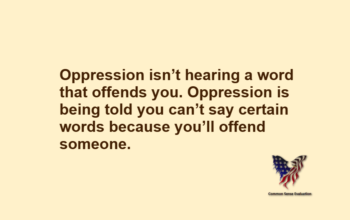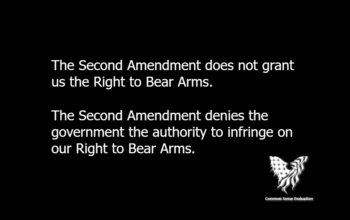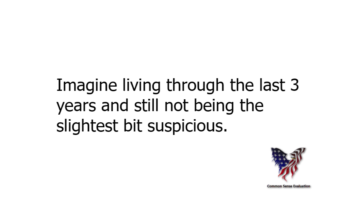Taxation and organized crime are two concepts that, on the surface, appear worlds apart. However, when we dig deeper into the mechanisms and effects of taxation, one might find some striking similarities between the government’s collection of taxes and the Mafia’s collection of protection money. This thought-provoking comparison challenges conventional views and prompts us to question the nature and legitimacy of taxation. In this article, we explore the commonalities between tax by the government and protection money by the Mafia, highlighting the potential ethical and moral dilemmas surrounding taxation.
The Coercive Nature
At the heart of both taxation and extortion lies an element of coercion. The government uses its legal authority to enforce tax collection, backed by the threat of penalties and legal consequences for non-compliance. Similarly, the Mafia resorts to intimidation, violence, and property damage to compel individuals and businesses to pay protection money. While the government’s actions are sanctioned by the law, the fundamental principle of coercive extraction remains the same.
Exchange for Services
Proponents of taxation argue that the funds collected go towards providing essential services and public goods. Similarly, the Mafia claims to offer protection and security in exchange for the money they collect. Both systems create an implicit transactional relationship where individuals or businesses pay for services rendered or benefits received. However, critics often question the effectiveness and efficiency of government services, just as doubts arise regarding the Mafia’s ability to genuinely safeguard businesses.
Lack of Voluntary Consent
One fundamental difference between taxation and protection money lies in the consent of the parties involved. While paying protection money is often non-negotiable, taxation operates under the assumption of implied consent. Citizens are obliged to pay taxes simply by residing within a particular jurisdiction. This raises concerns about the legitimacy of taxation when individuals have no choice but to comply, mirroring the lack of voluntary consent seen in extortion scenarios.
Allocation and Misuse of Funds
Another point of contention arises from the allocation and misuse of funds. Critics argue that both the government and the Mafia regularly misappropriate the money they collect. Corruption, inefficiency, and wasteful spending are persistent issues that plague both systems. This misuse undermines the original intent of taxation as a means to fund necessary public goods or protection money as a mechanism for ensuring safety and security.
Punishment for Non-Compliance
While the government relies on legal sanctions and penalties to punish tax evaders, the Mafia adopts a more direct and often violent approach to deal with those who refuse to pay protection money. Although the severity of punishment differs, the fundamental purpose remains the same: to enforce compliance through fear and deterrence. The fear of retribution drives individuals to pay their taxes or protection money, regardless of their personal beliefs.
Legitimacy and Moral Dilemmas
Taxation enjoys legitimacy by virtue of being sanctioned by the government and serving the collective interest. However, this does not absolve it from potential moral and ethical dilemmas. The parallel with protection money raises questions about the moral foundation of taxation. Does the government have an inherent right to forcefully extract funds from its citizens? Is taxation morally justified merely because it serves the greater good?
Final Thoughts
Exploring the unsettling parallels between government taxation and Mafia protection money forces us to confront a darker reality surrounding the nature of taxation. While taxation operates within the bounds of legality and social acceptance, it bears an uncomfortable resemblance to the coercive tactics employed by organized crime. The coercive nature, lack of voluntary consent, and potential misuse of funds raise significant ethical and moral concerns.
This comparison sheds light on the often-overlooked aspects of taxation, challenging the prevailing belief in its inherent legitimacy. The government’s ability to forcefully extract funds from its citizens, under the guise of serving the collective interest, poses profound questions about the boundaries of power and individual rights. The legitimacy of taxation, when scrutinized through the lens of protection money, becomes a moral quagmire that demands our attention.
Moreover, the unfortunate truth is that both government taxation and Mafia extortion can result in the misallocation and misappropriation of funds. Corruption, inefficiency, and wasteful spending erode public trust in the government’s ability to manage taxpayer dollars effectively. Similarly, the Mafia’s dubious track record in providing genuine protection further undermines any justification for their extortionary practices.
The punishment for non-compliance is another disturbing similarity. While the government employs legal sanctions, the Mafia resorts to violence and intimidation. Although the degrees of severity differ, the underlying purpose remains the same: to ensure compliance through fear and deterrence. This unsettling reality raises questions about the boundaries of a just society and the moral implications of using coercion as a means to extract resources.
Examining taxation through the lens of Mafia protection money reveals an uncomfortable truth about the nature of governmental power. It challenges us to reevaluate the unquestioning acceptance of taxation as an essential societal function and prompts a critical examination of the ethical and moral foundations upon which it is built. By recognizing the darker parallels between taxation and extortion, we can foster a more profound dialogue about individual autonomy, governmental accountability, and the delicate balance between the rights of the citizenry and the obligations of the state.



